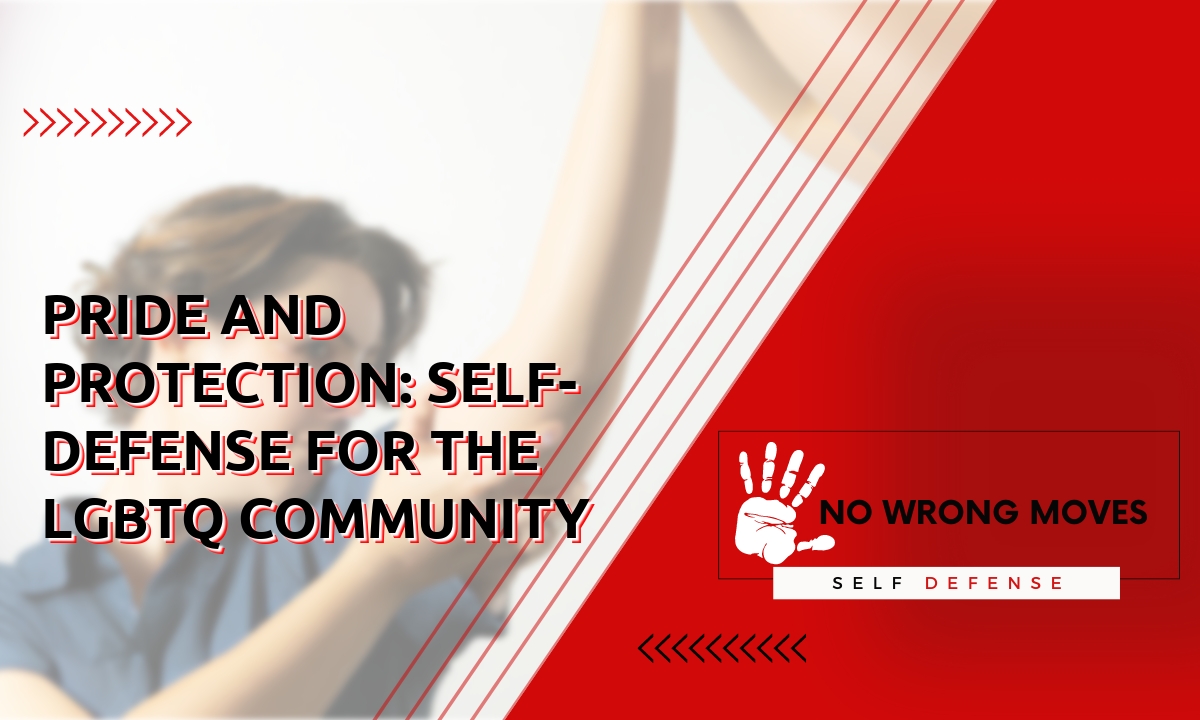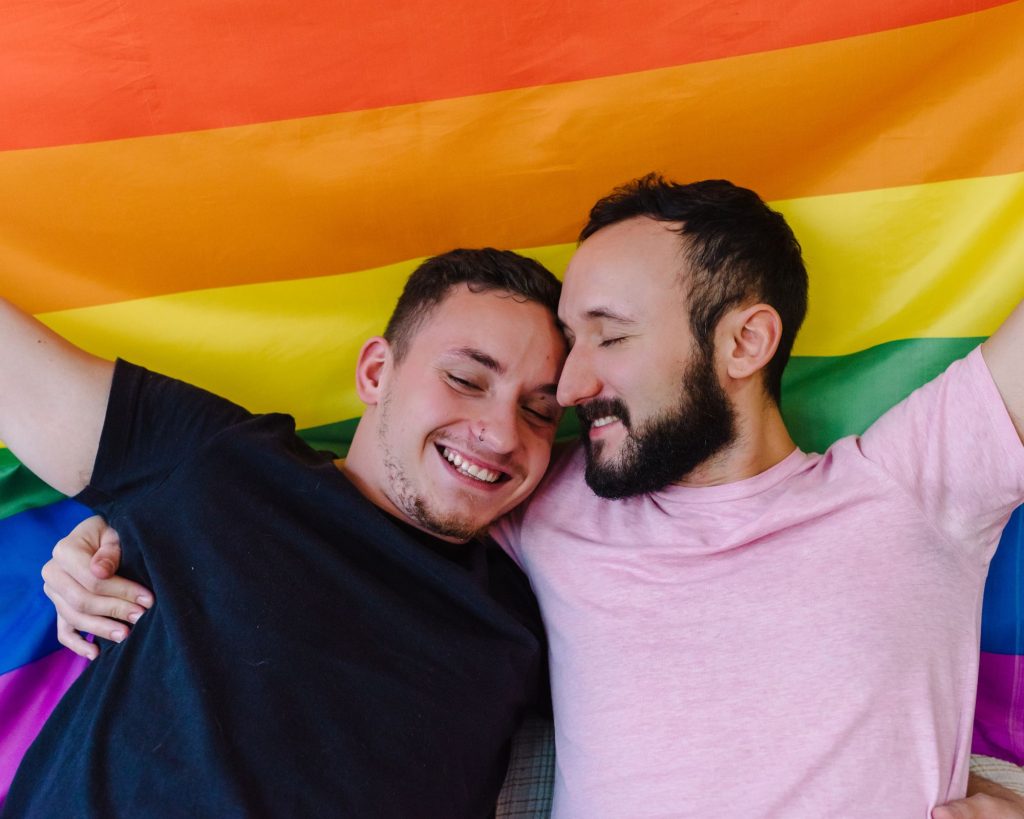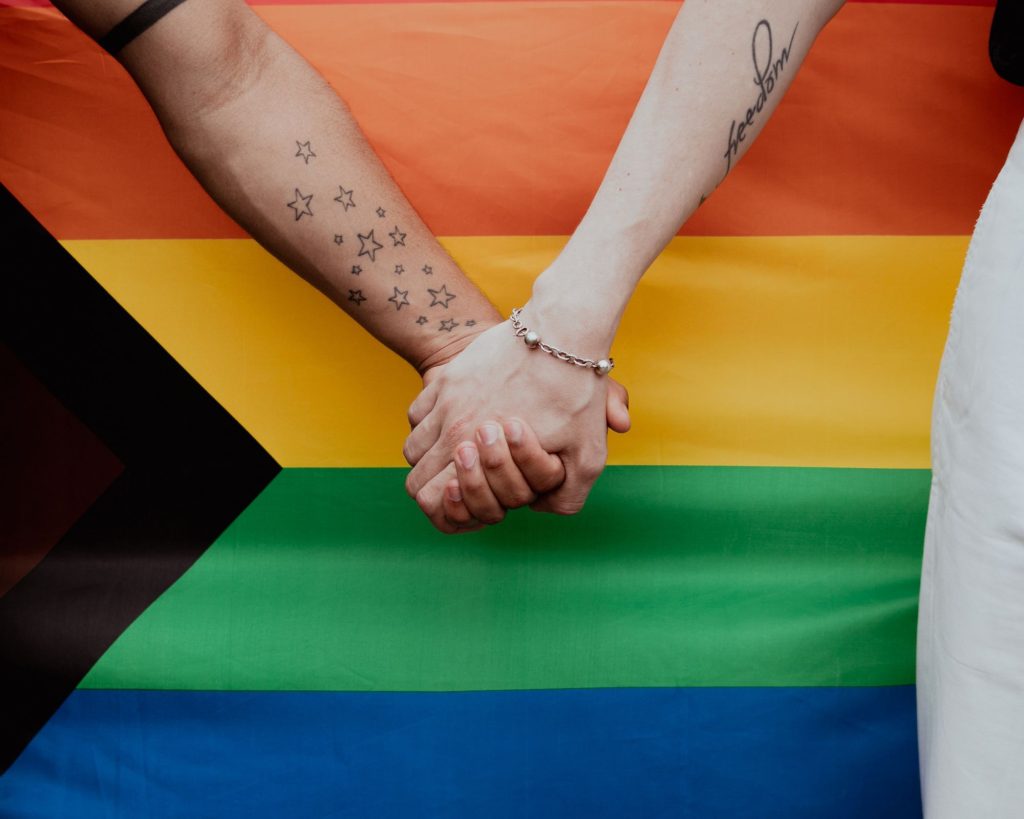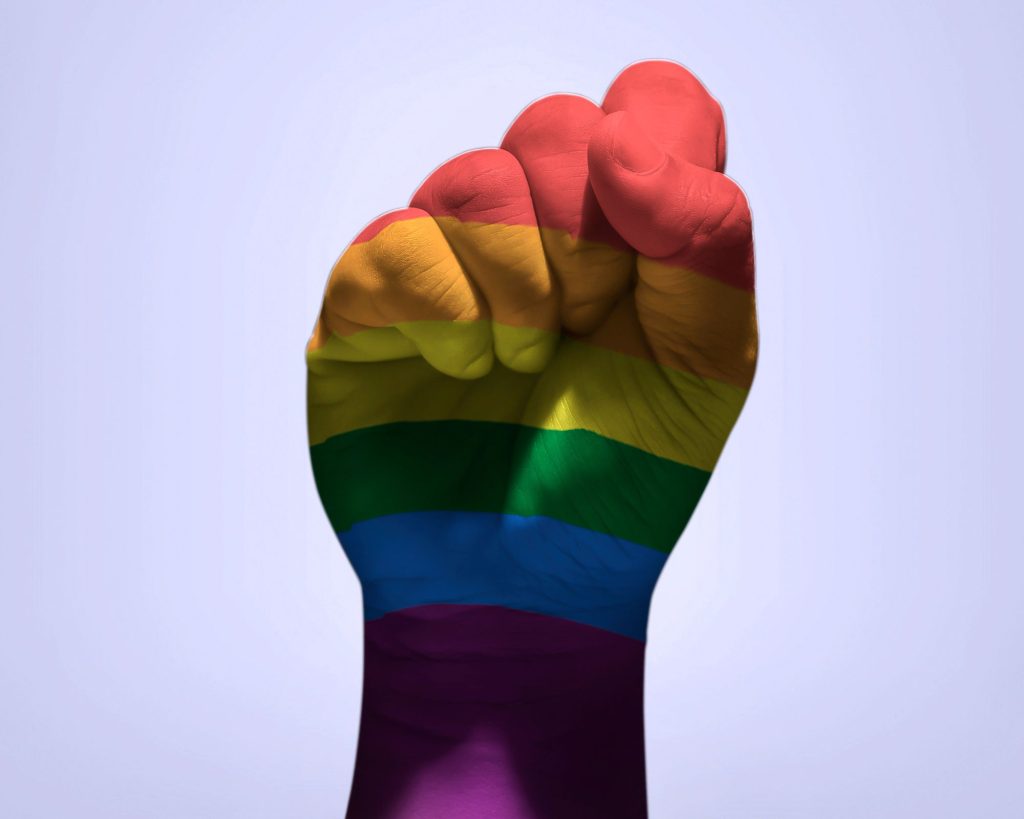
The LGBTQ community, as it stands today, has come a long way from the closeted, stifled lifestyle that used to be the norm.

With growing awareness and acceptance globally of gender identities and sexual orientations outside of heteronormativity, members of this diverse group are now able to live their authentic lives out loud - but with such freedom comes unique challenges pertaining to safety.
That’s why self defense for the LGBTQ community is absolutely crucial in order for members of this group to feel safe and secure in any situation.
Self-Protection Tactics

You can identify as transgender, queer, nonbinary, or somewhere in-between, it’s still always important for you to know how to protect yourself in any scenario, especially ones where danger may present itself.
This could range from an aggressive would-be attacker on the street corner at night, all the way up through subtler forms of discrimination encountered in your day-to-day.
So with that in mind, here are some self-protection tactics tailored specifically towards those within the LGBT community:
First off, never hesitate when it comes time to speak up! If a situation arises which requires verbal confrontation in order ensure your safety.
Don’t shy away from asserting yourself confidently yet politely in order make sure that everyone around understands just exactly what boundaries should not be crossed (and consequences for crossing them).
Clear communication is also a powerful tool that can diffuse volatile situations before they escalate into violence. Underestimating its effectiveness is unwise, so it's essential to recognize its potential to prevent conflict.
In addition to effective communication, understanding your rights based on local anti-discrimination policies is critical.
This can vary from place to place, of course, so familiarize yourself with the relevant laws and regulations so that you can take swift legal action, should the need arise.
To be fully prepared for potentially harmful scenarios, research the available resources, both legal and social. This knowledge will allow you to take ownership of the situation quickly and easily, should the need arise.
Lastly, be aware of physical self-defense tactics, such as martial arts, pepper spray, and tasers.
While not all tools may be available in your state or city (such as firearms), it's crucial to understand which options work best in certain circumstances. This knowledge can prove invaluable in times of need when preparation matters most.
Support Resources

Support resources are an oft-overlooked aspect when it comes to discussing trauma-related events. But the truth is, having access to counseling services, advocacy organizations, and other programs that help survivors process these events is crucial.
Depending on your geographical location, there are usually plenty of support resources available. Staying connected with these groups is a smart move.
They can provide excellent tips and advice on navigating complex issues, such as filing formal legal reports. They can also help you with getting involved in public campaigns that raise awareness about specific problems faced by the LGBT communities.
Moreover, these support groups also offer direct financial aid to victims who need immediate assistance dealing with medical bills resulting from personal injuries due to hate crimes or attacks.
By connecting with support groups, survivors can access much-needed resources and assistance during times of need.
Local government offices can also provide useful information pertinent topics affecting the LGBT community. They can tell you valuable statutes and statistics concerning marriage equality, legal protections, healthcare benefits, among others.
Allyship Programs
Allyship Programs offer great ways to develop strong networks of allies who share similar values when it comes to protecting vulnerable members of society.
These programs provide excellent opportunities to engage with the wider world, educating people on various LGBT issues.
They'll help people recognize the importance of accepting diversity and promoting equitable treatment across different demographics, ensuring fundamental human rights protection for everyone, regardless of their sexual orientation/identification or gender expression.
Moreover, it's worth remebering the intersectional component that plays a role here too. Individuals belonging to multiple marginalized segments of the population experience additional layers of oppression, which need careful consideration when addressing their respective concerns.
Fighting stigma involves embracing the right of people to express themselves however they choose, without fear of retribution or reprisal.
This notion extends beyond merely advocating for gay, lesbian, bisexual, and transgendered persons. It delves deep into the realm of recognizing the societal implications that intersecting identities create.
So a greater sense of nuance in dialogue is necessary to address the broader context of the struggle for justice, equity, and representation of the variety of experiences felt throughout the entire spectrum of existence.
Those living intersex, genderfluid, queer, and questioning lifestyles must be equally championed, given a platform, and have their voices heard. It's imperative that they receive adequate care services and are seen with the same value and worth as others.
Conclusion
In conclusion, self-defense for the LGBTQ+ community is not just about learning physical techniques, but it's also about being aware, informed, and prepared.
By taking the necessary steps to protect ourselves, we can decrease the chances of becoming victims of hate crimes or discrimination.
It's crucial to seek out resources and support, including allyship programs, counseling services, and advocacy organizations, to help us navigate complex issues and access financial aid if necessary.
Additionally, we must recognize the intersectionality of our identities and advocate for the rights and inclusion of all members of our community. Let's continue to support and empower each other in our journey towards safety and equality.
And always remember, there are no wrong moves when it comes to protecting yourself and those around you.
Curious to read about one of those martial arts we mentioned? They're a great way to protect you, after all. If you are, click here!
[author-box-jpx-fitness]
